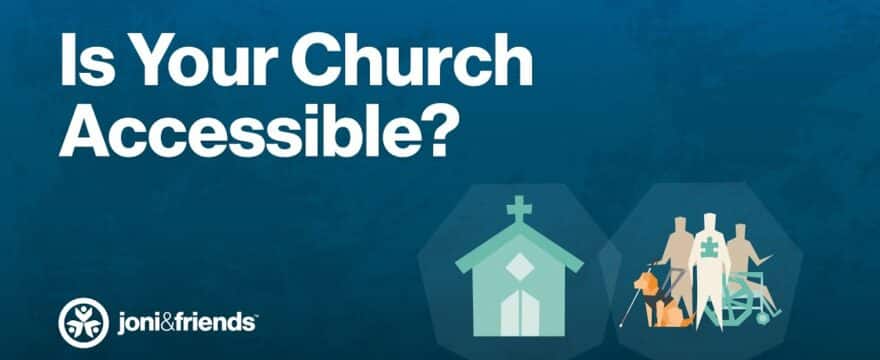Recently Joni and Friends shared a very powerful video on the topic of changing Church culture. From the standpoint of ministering to the world, I think it is easy to witness to those who want to hear, to those that look like us, and to those who the Church receives blessings of time and tithes.
- But what about those who the Church has to put lots of support into that are wheelchair bound or severely cognitively delayed?
- What about serving those who do not look like us or act like us and have made morally irreprehensible choices before they accepted Jesus and continue to suffer the earthly consequences of these decisions?
- What about those who we do not understand because of hidden disabilities like PTSD or developmental disabilities that make us uncomfortable like Autism?
For reference, here is the Joni and Friends video featuring Ryan Faulk:
Ryan says it well in his video about the advocacy mental health professionals play in working with individuals with disability:
People living with disability need to find places of belonging, especially in the body of Christ. But too often churches lack the awareness and resources to love, include, and serve people with disabilities well.
Building Awareness First
The hope of this website starts first with ending stigma of mental health within the Church. Nonprofits like Sanctuary Mental Health Ministries, this is their sole focus. But the focus of awareness across the world is an never ending task. So we can train up individual churches, staff, and volunteers to do this work across the world.
Trainings and Best Practices
Not every church and every community is going to do all things or need every resource out there. But collectively we can meet the needs of everyone. To train up these ministries, utilize organizations like Spiritual First Aid to do more. This then moves into implementing resources for your community, which we recommend Mental Health and the Church by Dr. Steve Grcevich.
Inclusion, Not Special Programing
It is my belief, as Joni and Friends also highlights, that ministries to special populations should happen among peers, not excluded from the general population. My wife is an intervention specialist for special needs students in schools and has transformed how she serves students, with her caseload in the general education classroom, only removing them when absolutely necessary or at the request of the individual. Dr. Grcevich also states that a ministry to those with disabilities or mental health should raise the wellness of the whole church, or its being implemented incorrectly, something I wholeheartedly agree with.
The final part of the video then takes the idea of church culture to push for people being served to then serve others, or else we are shortchanging their spiritual growth and the growth of the Church. I hope this is challenging to you to inspire your church to start something this year or do more.
